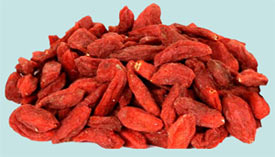
Everyone deals with occasional fatigue. If you are challenged by autoimmune disease or another chronic illness, there is a very good chance that fatigue is often a concern. I know it is for me! All three of my autoimmune conditions, Sjögren’s Syndrome, Celiac, and Hashimoto’s Thyroiditis, include fatigue as a major symptom. As such, I have tried anything and everything to boost my energy.
A Healthy Diet Balances Blood Sugar
The gold standard nutritional rule for fighting fatigue is to avoid processed and sugary foods. Those low nutrient foods cause rocky highs and lows in blood sugar levels, which in turn cause energy levels to spike and then crash. The antidote to unstable blood sugar and energy levels is a diet that is balanced in protein, complex carbohydrates, and healthy fats. In addition, the following super foods and nutritional supplements can be helpful in fighting fatigue:
Super Foods for Energy
- Green Tea – as an alternative to coffee, which can cause jitters and poor digestion, green tea is rich in antioxidants which reportedly help to lower inflammation and raise metabolism.
- Cacao Nibs – similar to green tea, cacao contains catechins which possess antioxidant and anti-inflammatory properties, along with a little caffeine for a natural lift. Cacao nibs are also high in fiber making them a filling addition to a morning smoothie or afternoon snack. Cacao is quite bitter, so mix it with foods that already taste sweet (i.e. berries or nut butter) or enjoy them with a sugar-free sweetener like stevia.
- Goji Berries – popular in Chinese Medicine, goji berries are again high in antioxidants. They are said to help raise the qi (natural energy) in the body. Since they are naturally high in sugar, just a few berries go a long way. Add a handful to a protein smoothie or mix with nuts for a healthy trail mix.
Nutritional Supplements for Energy
- B-vitamins – the B-vitamins are vital for metabolism, which makes them an important part of any energy-boosting dietary plan. B-vitamins are found in fortified whole grains, legumes, vegetables, and nuts. However, they can be somewhat difficult to come by if you are following a gluten-free diet that relies on packaged foods, since those foods are often not fortified. In that case, and for vegetarians and older adults (who have trouble absorbing B-12), it is wise to take a B-vitamin supplement. To ensure optimal absorption a sublingual or liquid B-vitamin complex is best.
- D-Ribose Sugar –although it is a form of sugar, which in itself can cause energy highs and lows, d-Ribose seems to function a bit differently by encouraging energy production in the heart and muscles. A small study showed that d-ribose offered improvement in fibromyalgia and chronic fatigue syndrome. In my own personal experience, I have seen a boost in my energy when I add a small amount of d-ribose to my diet (adding the powdered form in tea or coffee or taking it as capsules).
- Rhodiola Rosea – the herb rhodiola appears to be helpful with depression, which is often a contributor to fatigue. [For more info, check out what Dr. Weill says about Rhodiola].
These are some of the most helpful ways to increase energy through diet. But this is not an exhaustive list by any means. There are many other ways to improve energy and mood through gratitude, exercise, body therapies, and more. If one option doesn’t work, just keep trying and eventually you will find the solution that is perfect for you.
What do you do when you are feeling fatigued?
